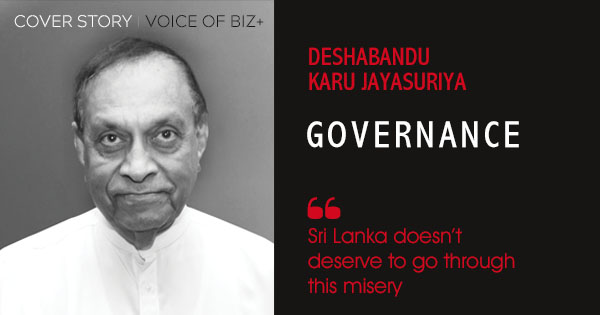DESHABANDU KARU JAYASURIYA

Sri Lanka must found itself on human capital, social infrastructure and participatory institutions. Sri Lanka doesn’t deserve to go through this misery. Although current events manifest as an economic crisis, it is a crisis of governance.
Its roots are in irresponsible and bad decision making. Lack of transparency in government decision making processes weakens the capacity of citizens to hold officials accountable for their actions. This has created a breeding ground for many of the root causes of the present crisis – including cronyism, debt financed across the board subsidies favouring the rich and powerful, and heavy taxation of the poor (80% of revenue from indirect taxes) resulting in chronically high inflation.
State owned enterprises (SOEs) and foreign debt funded infrastructure development projects have been run by friends and relatives of the political elite at great cost to the economy. The outcome of all these has been persistently high budget deficits, currency depreciation and inflation.
Sri Lanka must come out of this crisis as a stronger economy and democracy. So how can we do it?
I reiterate that Sri Lanka must found itself on human capital, social infrastructure, and participatory institutions for growth and development.
From the local level onwards, participatory systems must be empowered so that the voice of the people, especially the youths, is heard – and so that they may participate in decisions that affect them. Such a process must start first at the top, by repealing the draconian 20th Amendment to the Constitution that is at the very core of the present crisis.
Until we solve the crisis of governance, no economic straitjacketing will solve our issues. However, I remain hopeful that Sri Lanka can adopt more transparent and inclusive governance structures that prioritise people, and become a thriving nation.



